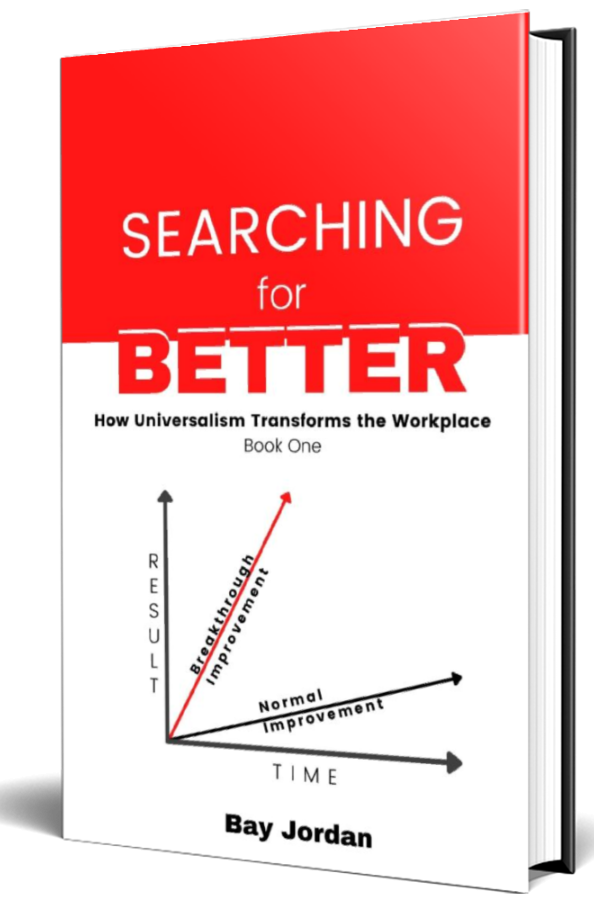Ambitions, goals, plans – whatever you call such things – are all projections of the future and what you intend to achieve. Without them you just drift and become what has historically been called “a victim of fate.” We all need to be more conscious of the fact that we are responsible for the future. The future is not something we wish for, but something we enable through the actions we take today.
What kind of future do you want?
Even the UN has taken to setting goals! That is why they have identified 17 global Environment, Sustainability and Governance (ESG) development goals to govern our strategies, operations and performance measures moving forward.


Just look at them, though: With things like “No Poverty” and “Zero Hunger” etc., you could be forgiven for thinking they are more wishes than realistic, achievable objectives. Either way, they demand new approaches with new systems and procedures. What has made us successful in the past clearly will not continue to make us successful in the future!
So to enable the future you would like, rather than passively accepting a “default” future, you need to take action – now! This is where my latest book can help.
Searching for Better
There can be little doubt that the world is a mess. The number of crises humanity is facing seems to increase daily. Many are largely unprecedented, so we cannot meet them with historic solutions. In any case, as Albert Einstein said, “You cannot solve a problem with the same thinking that created it!”
So, rather than simply criticising or complaining, I have sought solutions. As matters have deteriorated, my sense of urgency has increased, and led to my latest book, “Searching For Better.”
Recently published, “Searching For Better” is in fact two books.
Book One is sub-titled “How Universalism Transforms the Workplace.” It provides the answer to a challenge that business has been attempting to solve for around seven decades: how to value employees as assets. As the sequel to “Lean Organisations Need FAT People”, it addresses the challenge raised in that book, and introduces and explains my Every Individual Matters Model. This offers a surprisingly simple way to enable you to put employees on a balance sheet or notional balance sheet as “Human Assets”.
Valuing, accounting for and treating your people as assets enables you to create a responsive and adaptive culture that transforms your organisation into a purpose-driven organism; equipped to meet your ESG objectives, and be an altogether better corporate citizen. The model ensures more accountability and greater engagement with greater synergy, productivity and social responsibility.
My New Book “Searching for Better – Book 2” out now.
Book Two is sub-titled “Exploring Ideas for Improving our Quality of Life.” It expands on the full principles and protocols of ‘Universalism’. It builds on the commercial (micro-economic) elements of Book One to deal with the socio-political (macro-economic) issues of financing government. Thus, amongst other things, it illustrates:-
- The fallacy of corporate taxation and how it could (and should) be totally eliminated;
- How to simplify income tax to address the problem of the widening wealth gap that underpins so many of today’s issues;
- A practical model Net Income Tax or Universal Basic Income that offers the chance to eliminate homelessness and poverty.
The crises we face – climate; environment; cost of living; and now war in Europe – dominate headlines to such an extent that they increasingly shape our everyday conversation. Thinking people are concerned and growing increasingly anxious. But, unfortunately, most attempts to find solutions turn back to existing ideas and ideologies. As a result, positions are becoming increasingly entrenched, with polarised attitudes creating greater conflict and threatening repetition of the 20th Century bloodshed.
“Searching for Better” attempts to circumvent this. Both books take a closer look at some of the unchallenged assumptions that underpin the historic ideologies and the systems they created. Re-evaluating those assumptions they present new ideas. Hopefully these will accelerate the development and implementation of new sociopolitical systems that will create a fresh way forward – and one that will be more sustainable and prevent the unthinking models of the past. Only then can we realise our ESG goals and ensure a future at all – let alone a better one!


